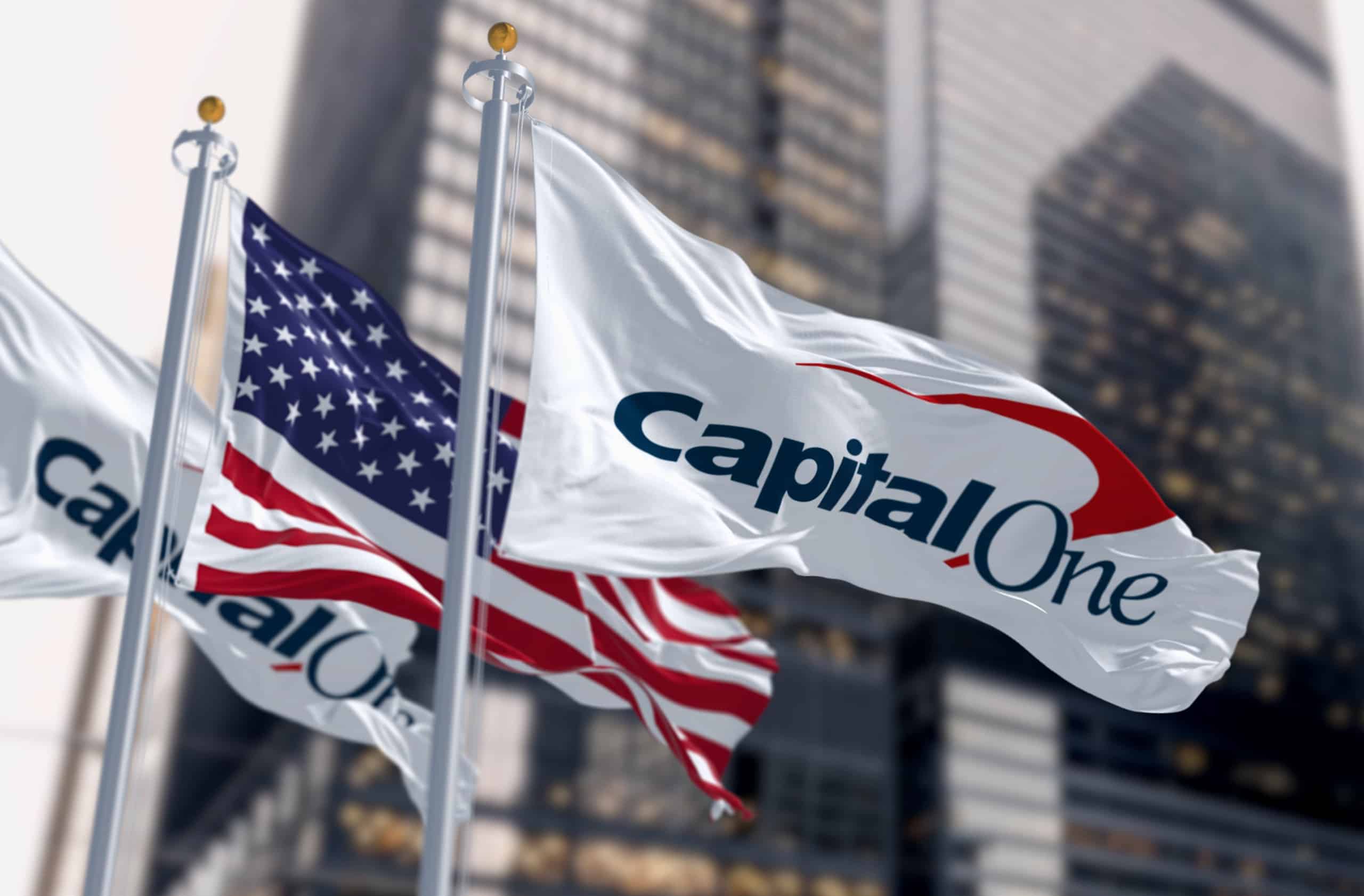A vocal coalition is urging the Federal Reserve to reject a massive credit card merger.
The volume of opposition surrounding Capital One’s blockbuster acquisition of Discover underscores a larger trend across the M&A landscape, one where hefty price tags tend to garner immense—and time-consuming—regulatory pressure.
As pre-close periods stretch from months to years, corporates are preparing for the long haul, according to Bankrate senior analyst Ted Rossman.
“The broader climate has been pretty anti-merger,” Rossman says. For Capital One—the ninth largest bank in the US—the odds of it completing a $35-billion-plus acquisition of the Discover credit card brand are slim, he adds.
“I would take ‘the under’ based on some of these other [M&A] developments,” he says, citing the growing list of other deal plans that have been either stalled or scrapped entirely.
In the transportation sector, JetBlue Airways confirmed on March 4 that its $3.8-billion Spirit Airlines deal was over after 17 months of back-and-forth between the carriers and lawmakers. A federal judge blocked the deal, and the New York-based carrier had to pay $69 million in termination fees to Spirit.
In retail, the US Federal Trade Commission (FTC) recently moved to block Kroger’s $25 billion acquisition of Albertsons, citing concerns that it would limit competition in the supermarket industry, and negatively impact customers.
And the FTC is currently assessing the antitrust impact of a $53 billion merger between Chevron and Hess, which involves key assets in Guyana. The situation is further complicated by right-of-refusal claims made by rival Exxon Mobil.
The trend isn’t exclusive to the US. In 2022 and 2023, at least $361 billion in announced deals were challenged by regulators around the globe, per stats from M&A consulting firm Bain & Co.
Roughly $255 billion of those deals ultimately closed, but almost all them required some sort of tweak to the original purchase plan. For example, Microsoft—to seal its $69 billion acquisition of Activision Blizzard—appeased the European Commission and the UK’s Competition and Markets Authority (CMA) by granting cloud streaming rights to video games to Paris-based Ubisoft.
Other big-name companies weren’t as successful as Microsoft. Amazon said on January 29 that it would not move forward with plans to buy vacuum-maker iRobot for $1.7 billion. The European Commission, the executive body of the EU, ruled that the proposed deal could result in the Seattle-based e-commerce giant hurting iRobot rivals by not letting them compete on Amazon.com. A couple months earlier, the EU also blocked Booking Holdings Inc.’s €1.6 billion ($1.7 billion) takeover of Sweden’s Etraveli Group after determing that the transaction would hurt other online travel agencies.
“Rising scrutiny and lengthening review timelines have caused a handful of companies to withdraw their deals,” Bain & Co. VP Suzanne Kumar wrote in a January report. “Yet the simple reality is that buyers still need to do deals to advance strategic goals, and most contested deals do make it to close.”
Whether Capital One and Discover “make it to close” remains to be seen. So far, it’s not looking good.
In a March 6 letter seen by Global Finance Magazine, a chorus of about two dozen advocacy groups urged Fed Chair Jerome Powell and other regulators to intervene and block the Discover acquisition. Combining two major credit card companies would harm competition and concentrate risk in an already fragile financial system that—just last year—was rocked by the the FDIC’s sudden takeover of both Silicon Valley Bank and Signature Bank, they argued.
The signatories, which included the American Economic Liberties Project, also warned that the purchase would likely lead to Capital One’s increasing fees post-acquisition, hurting both consumers and businesses nationwide.
Capital One CEO Richard Fairbank expects the acquisition to help the bank “build a payments network that can compete with the largest payments networks and payments companies.”
JPMorgan Chase oversees roughly 17% of credit card balances; Capital One, if it buys Discover, would leapfrog that—but by a mere 2%.
Other competitors in the space include Mastercard, Visa and American Express.
Powell briefly addressed the matter on Wednesday at a hearing with the House Financial Services Committee.
“I think on the potential merger… we haven’t received an application,” he said. Powell was referring to protocols that require any company seeking to either become a bank, or acquire a bank, to apply for Fed approval under the Bank Holding Company Act of 1956.
“So, there’s really not much to say yet,” he added. “It’s early days. When we do get that application, though, we’re going to evaluate that merger as always under the factors laid out under the law and that’s our commitment.”
Applications that require review or action by the Fed board can add at least 60 days to the deal process.
Also, the nature of Capital One’s deal is especially tough considering how the Biden administration has made serious efforts to clamp down on all banking and credit card matters, not counting M&A.
As recently as March 5, the Biden administration finalized a rule to eliminate junk fees on credit cards and cap most late fees at $8, down from an average of $32. The Consumer Financial Protection Bureau touted that the new regulation would save families more than $10 billion a year.
“There’s going to be a lot of regulatory scrutiny on this one,” Bankrate’s Rossman says. “The credit card industry is under a microscope, especially in an election year. I’m not sure this will proceed but it’ll be fascinating to watch.”




